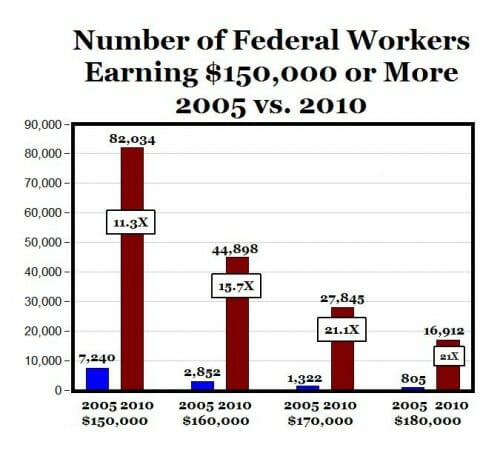I am done using the phrase "dangers of government trying to pick winners" because it implies that they sometimes might be successful. They never are. When governments choose, they choose losers.
I get a lot of pushback on this, because it seems to offend people's intuition. They will say they know lots of good people they trust in government -- there is no way that all these smart, well-intentioned people are going to be so consistently wrong.
But the argument against government in this case (and in most other cases) is not based on the IQ or goodness of the individuals that populate it. The argument is that even good people in groups make terrible decisions due to problems with their information and incentives.
The information problem is one that Hayek is famous for addressing. In short, there is simply too much to know to make decisions for the entire economy. In fact, folks with high IQ's often do especially poorly in this context, because they tend to overestimate their own knowledge and problem-solving ability. And, even if one could be omniscient, it is still impossible to pick winners because 300 million people have different preferences and so one solution based on one set of idealized or mean preferences is going to sub-optimize for a lot of people (remember this now that we all have to have health insurance plans on the exact same terms and coverage).
The incentives issue is perhaps an even more powerful problem. We only have to look at the most recent health care bill and its progress through the legislative process to understand the power of incentives to shape rules and legislation in absurd ways.
Ethanol is a great illustration. Scorned by scientists as both bad energy policy and bad environmental policy, ethanol mandates and subsidies do nothing but hurt the environment. Ethanol generally takes more fossil fuels to produce than it replaces, it does almost nothing to reduce CO2 emissions, and it creates new environmental issues with land use as well as social issues from rising food prices. If you listed a hundred potential legislative initiatives to improve the environment and energy policy, ethanol would likely be in the bottom 10. But never-the-less, it is consistently the number 1 legislative solution adopted by western democracies, including the supposedly science-based Obama administration.
I used to say that if we could move the first Presidential primary out of Iowa, ethanol might go away, but obviously that understated the appeal of subsidizing the agricultural industry under the thin veneer of environmental policy, as demonstrated by these nutty large subsidies in Europe. Via Carpe Diem:
Biofuels production in Europe is heavily subsidized. Support has also been increasing in the past years and today stand at approximately EUR4 billion ($5.76B). Another way to look at subsidies is that every litre of ethanol consumed in Europe gets 0.74 EUR (about $4 per gallon) and every litre of biodiesel 0.5 EUR ($2.72 per gallon). The effective rate of assistance to biofuels (taking account of all measures of support) adds up to more than 250% for ethanol (see chart above). Biodiesel, and especially rapeseed crops, have lower effective rates of assistance (up to approximately 60%).
This structure of support and protection is not economically sustainable. It is rather close to economic madness to pursue the sort of self-sufficiency or industrial policy ambitions that have guided EU policy towards biofuels. The total cost of every unit of biofuel becomes far too high, which slows down the readiness to shift away from fossil fuels.
The biofuels policy in the European Union is a classic example of "green protectionism" "“ protectionism that is not motivated for the benefit of the environment, but which uses environmental concerns to pursue non-environmental objectives. The European Union runs an extensive policy for subsidies to biofuel production. Border protection increases the level of subsidy by giving a market support from consumers to producers. Standards are used to favour domestically produced biofuels. It is difficult to escape the picture of a policy driven by industrial ambitions rather than environmental concerns. The intention and/or the effect of Europe's policy is associated with beliefs of self-sufficiency. Obviously, trade is not considered to be an integral part of an environmental ambition to shift from fossil fuels to biofuels.



